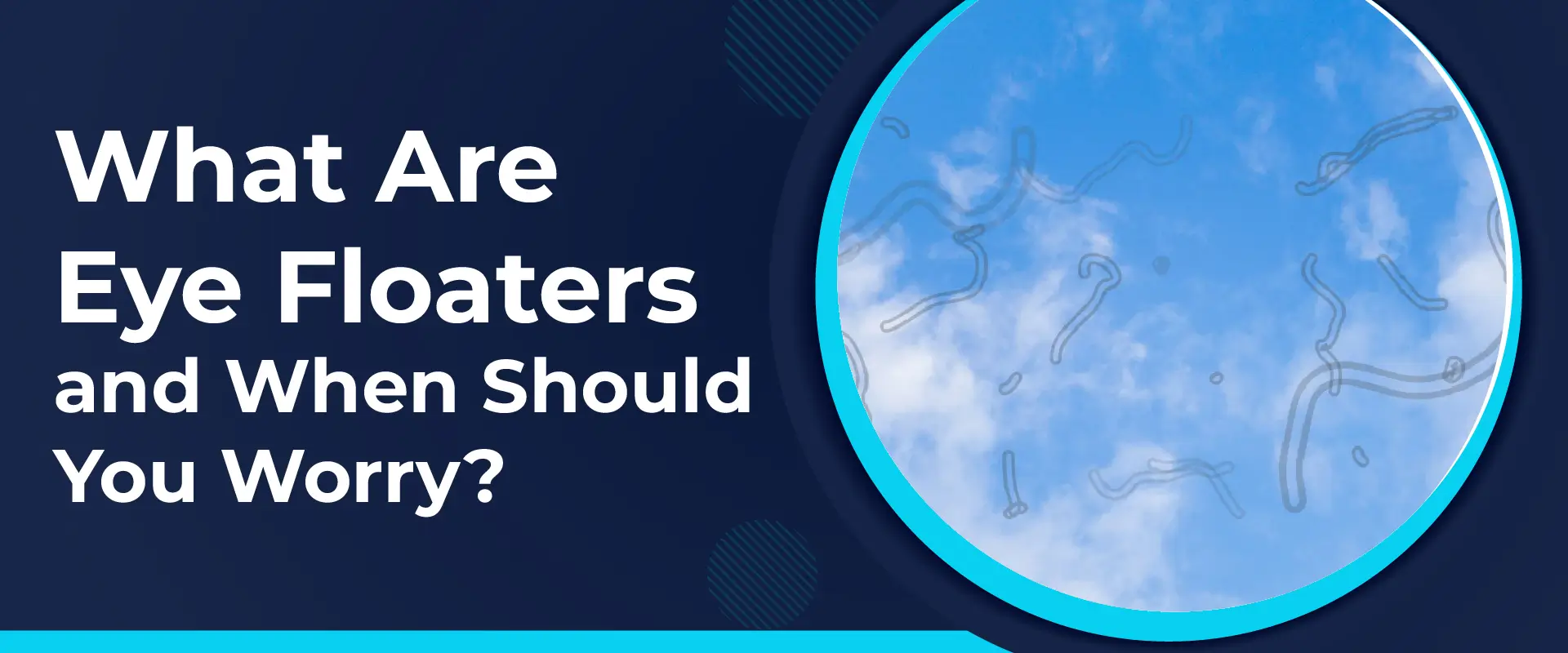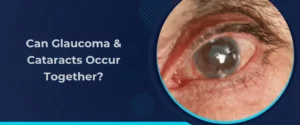Ever noticed tiny specks, threads, cobwebs, or circles of varying sizes and shapes floating across your eyes? Most people have, and if you haven’t till now, you most likely will!
What these eye floaters mean, and when they are a cause for concern can vary. Let us understand what floaters are and when you need to consult an eye specialist.
What are Eye Floaters?
Eye floaters are just as the name suggests – spots that drift and float across your field of vision. According to Dr. Amanpreet Kaur, a renowned eye doctor in Chandigarh, floaters may appear in various forms – specks, cobwebs, and cloud-like shapes, and they can arise due to different reasons.
There is nothing to worry about if you see a hazy eye floater or a few small dark floaters once in a while. Such floaters are quite common and are not associated with any issue.
People generally observe this kind of floaters when they look at something light-coloured or bright. It could happen while looking at white walls, afternoon sky, or shiny surfaces.
Vitreous humour is a gel-like fluid filling the eyeball. As our age advances, this fluid starts changing its consistency to liquid-like. This is the reason why people start observing another kind of floaters in their vision. Such floaters are a sign of posterior vitreous detachment.
It usually happens when people are in their fifties or sixties. After losing its consistency, the vitreous gel gets separated from behind the eye. This floater is different. It may seem like a cobweb or like a tiny drifting cloud. There may also be cloudy vision. It often happens all of a sudden, and flashes of light accompany this floater.
The reason why there is no pain, only flashes of light is that the retina lacks pain fibres. Flashes indicate that the retina is in trouble.
Lastly, separation of vitreous humour can cause another type of floater. This one is serious. Vitreous separation can rupture blood vessels, causing bleeding inside the eye. The gel inside your eye (vitreous) is attached to the retina at certain points. When it pulls away, it can sometimes tear the retina, which can finally cause retinal detachment.
Patients describe such floaters as seeing dark spots in their vision and that they do not go away. It is not usually subtle. A retinal tear can cause pigment cells to be released into the vitreous, often seen as a shower of floaters. It is an issue that requires immediate and urgent attention of an ophthalmologist, the reason being that a retinal detachment or tear must be repaired fast.
What Causes Eye Floaters?
- Age-related wear and tear, generally post 50 (most common cause)
- Extreme nearsightedness (elongated eye shape can result in early vitreous separations)
- Eye injury or trauma
- Eye surgery
What is the Treatment for Eye Floaters?
Infrequent floaters that individuals of all ages see after looking at something shiny or glowing, do not require any treatment.
As regards the effect of vitreous detachments or separations on vision, it is different for different individuals. While some people in a serious condition may not see any floaters, others may be highly affected.
In a majority of cases, the brain gets accustomed to floaters and tends to ignore them. However, for others, floaters start affecting their daily life and work. This is when treatment is recommended.
In serious cases, vitrectomy is used to treat floaters. It is the same procedure which is used for retinal detachment and diabetes. Your eye specialist advises you to go ahead with this surgery depending on the severity of your symptoms and the results of a clinical eye examination.
Fine particulate floaters appear due to retinal detachments or tears. Such eye floaters need immediate treatment for vision protection:
- Cryopexy (laser or freezing treatment) – to seal breaks or tears in the retina
- Pneumatic retinopexy (gas therapy) – to gently place the retina back in position
- Surgery (vitrectomy or scleral buckle surgery) – If a huge part of retina gets detached, surgery is needed to repair it
If you cross the age of fifty, you are quite likely to experience eye floaters. Your brain may learn to adapt with floaters. However, if it is serious enough to damage vision, you may require other treatments to prevent vision loss.
It is always good to get annual eye examinations, irrespective of age. It ensures that just in case any eye condition develops, it is treated well in time.





